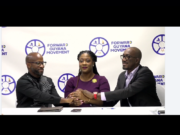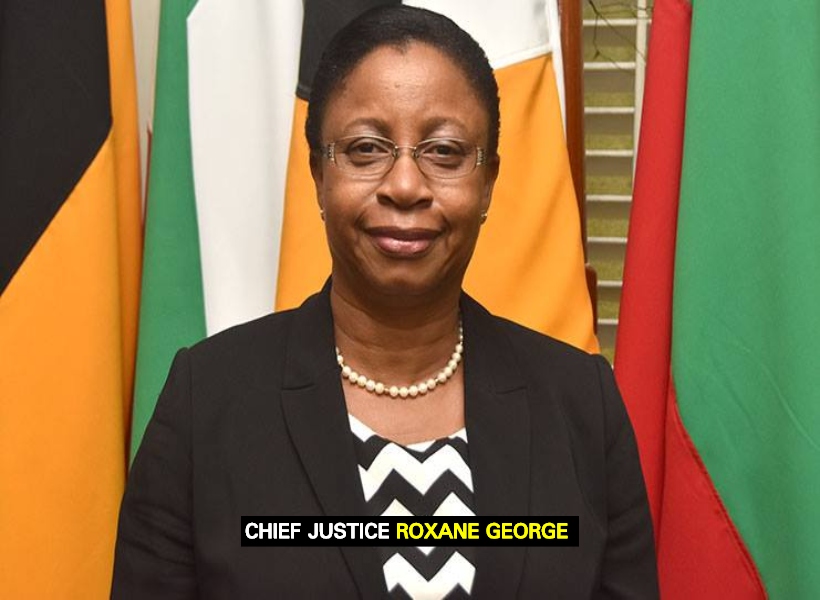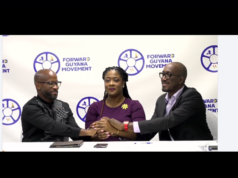Chief Justice (CJ) Roxane George-Wiltshire has committed to hand down her decision on January 18, 2021 regarding an application made by Attorney General, Anil Nandlall and Counsel representing, Bharrat Jagdeo, to have a petition challenging the March 2 General and Regional Elections thrown out.
Nandlall had filed the application seeking to have the petition struck out, noting that the Leaders of the two main political parties, the PPP/C and the APNU+AFC were not served in accordance with the law.
The petition, (99/20-P) or Monica Thomas et anor -v- Chief Elections Officer (CEO), Keith Lowenfield et al, is based on allegations of several irregularities in the conduct of the elections including: “Widespread voter impersonation; widespread noncompliance with documentation; the flawed voters’ list; and other irregularities”.
The attorneys Representing the Leader of the APNU+AFC, the second-named respondent in the case, David Granger, has sought to extricate him. The implication, some political commentators have posited, will render Nandlall’s application weightless, if Granger is removed from the equation.
But the AG and Jagdeo’s attorney, Douglas Medes, are maintaining that Granger’s participation in the matters is of paramount importance, since his party benefited from the elections which is currently being disputed.
Additionally, Mendes argued that Granger is indeed a proper party to the proceedings.
He noted that Section 4 (2) of the National Assembly Validity of Elections Act sets out the conditions for what constitutes a respondent.
CJ to rule on application to throw out elections petition in January
Chief Justice (CJ) Roxane George-Wiltshire has committed to hand down her decision on January 18, 2021 regarding an application made by Attorney General, Anil Nandlall and Counsel representing, Bharrat Jagdeo, to have a petition challenging the March 2 General and Regional Elections thrown out.
Nandlall had filed the application seeking to have the petition struck out, noting that the Leaders of the two main political parties, the PPP/C and the APNU+AFC were not served in accordance with the law.
The petition, (99/20-P) or Monica Thomas et anor -v- Chief Elections Officer (CEO), Keith Lowenfield et al, is based on allegations of several irregularities in the conduct of the elections including: “Widespread voter impersonation; widespread noncompliance with documentation; the flawed voters’ list; and other irregularities”.
The attorneys Representing the Leader of the APNU+AFC, the second-named respondent in the case, David Granger, has sought to extricate him. The implication, some political commentators have posited, will render Nandlall’s application weightless, if Granger is removed from the equation.
But the AG and Jagdeo’s attorney, Douglas Medes, are maintaining that Granger’s participation in the matters is of paramount importance, since his party benefited from the elections which is currently being disputed.
Additionally, Mendes argued that Granger is indeed a proper party to the proceedings.
He noted that Section 4 (2) of the National Assembly Validity of Elections Act sets out the conditions for what constitutes a respondent.
Section 4 (2) states inter alia: “The person hereinafter referred to as the respondent is the representative of such list of candidates for election as comprises the names of persons with whose interests arising out of the election any contention in the election petition conflicts…”
Mendes says that Granger’s lawyers must show that there is no contention in the petiton that conflicts with interests in order for them to succeed in their submission that the second respondent is not a necessary party.
Section 4 (2) states inter alia: “The person hereinafter referred to as the respondent is the representative of such list of candidates for election as comprises the names of persons with whose interests arising out of the election any contention in the election petition conflicts…”
Mendes says that Granger’s lawyers must show that there is no contention in the petiton that conflicts with interests in order for them to succeed in their submission that the second respondent is not a necessary party.









